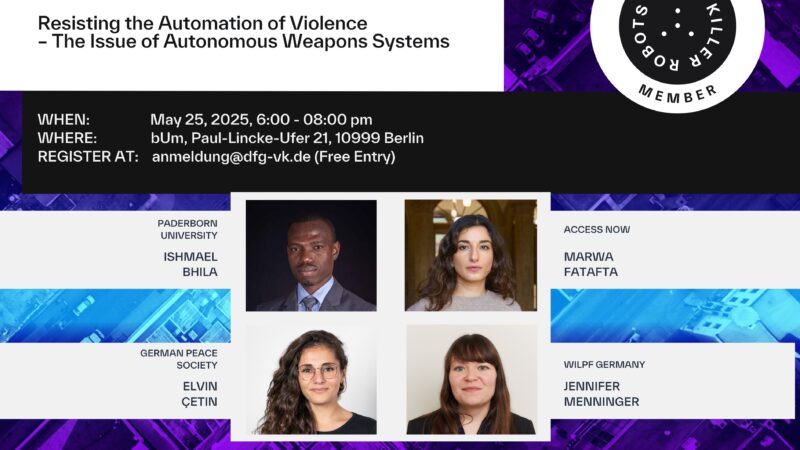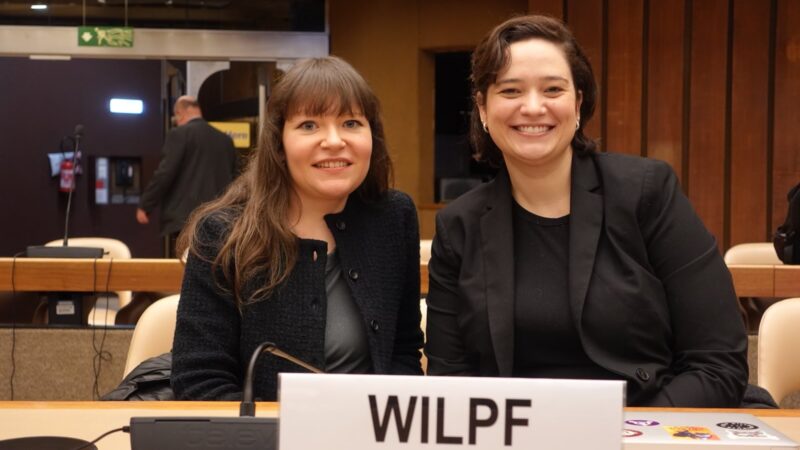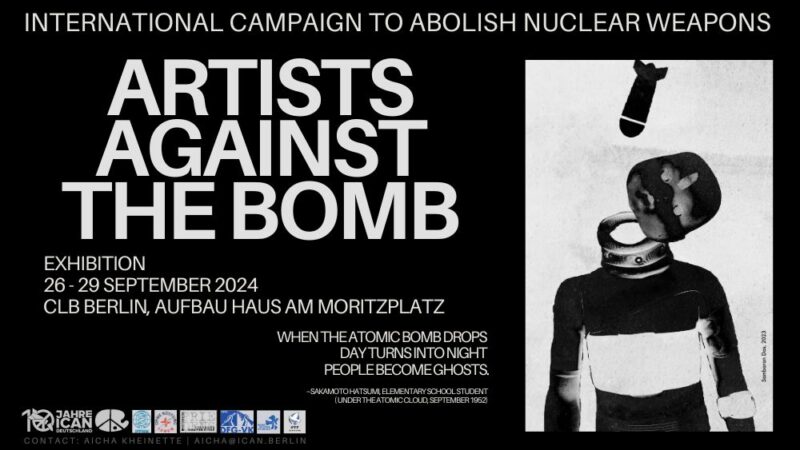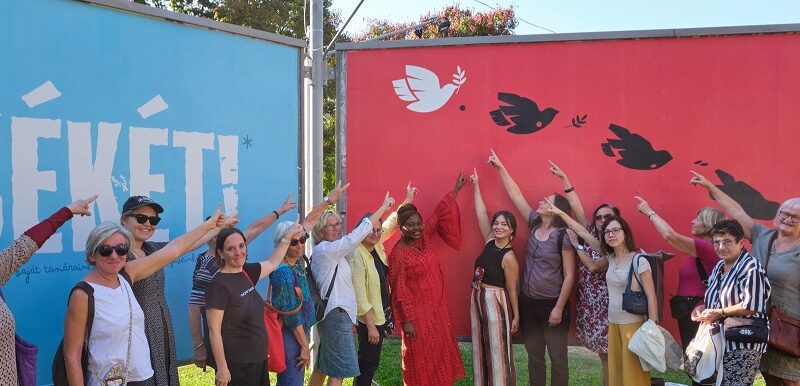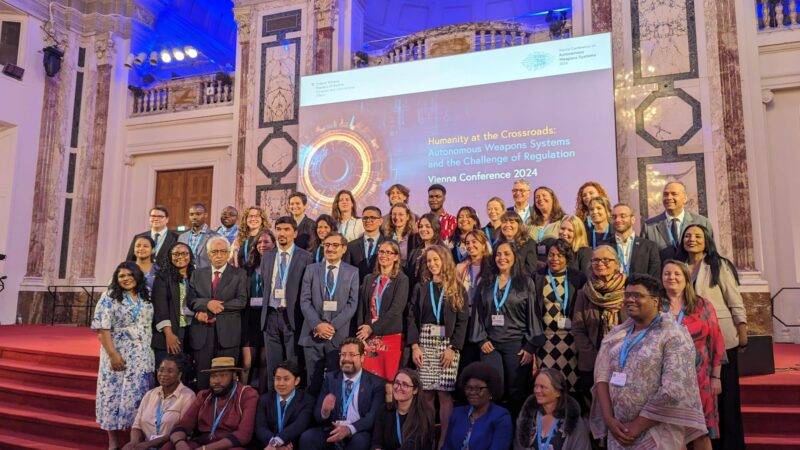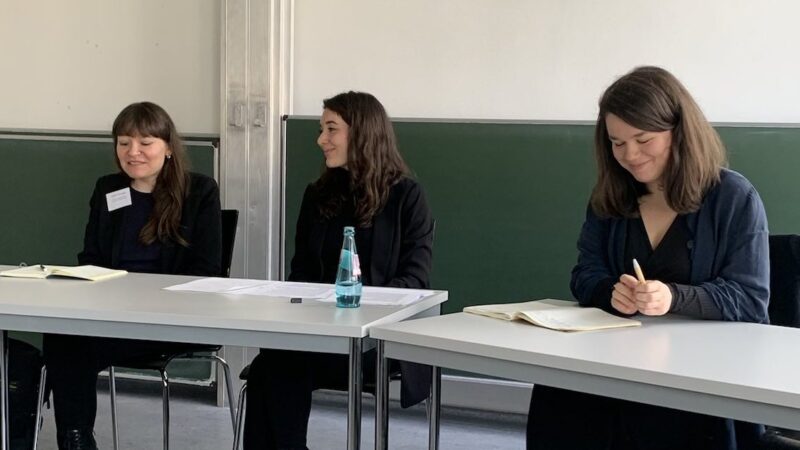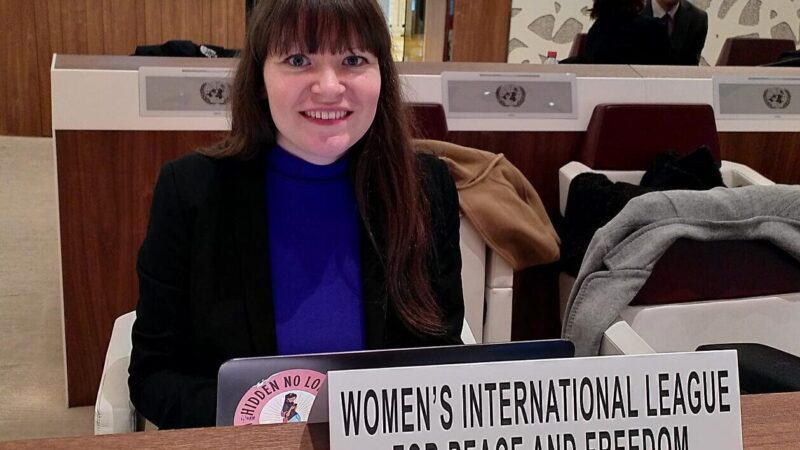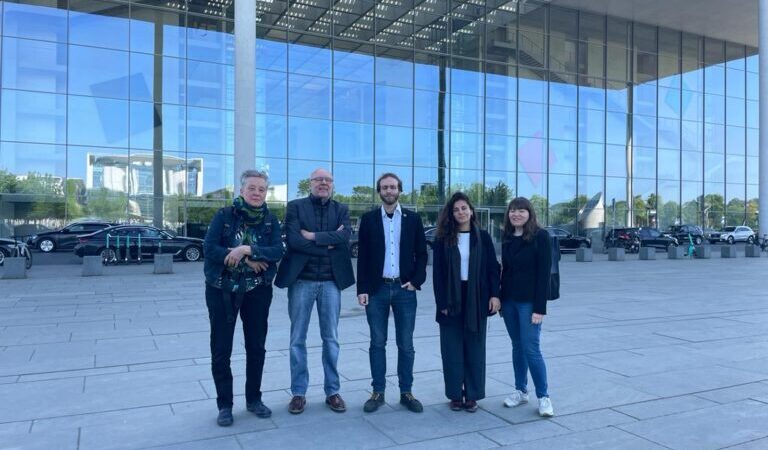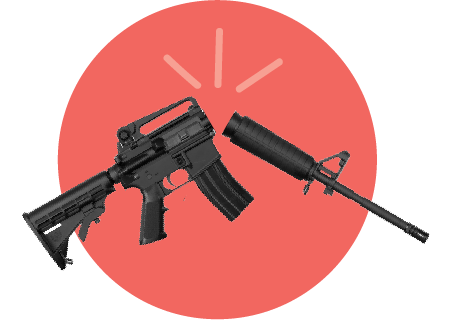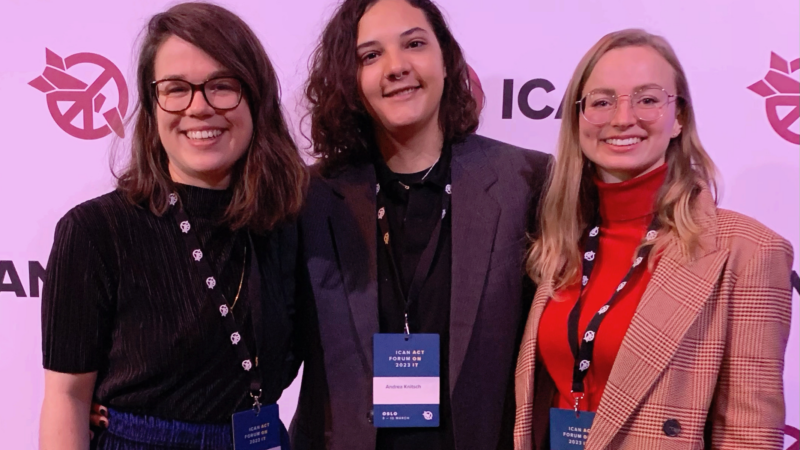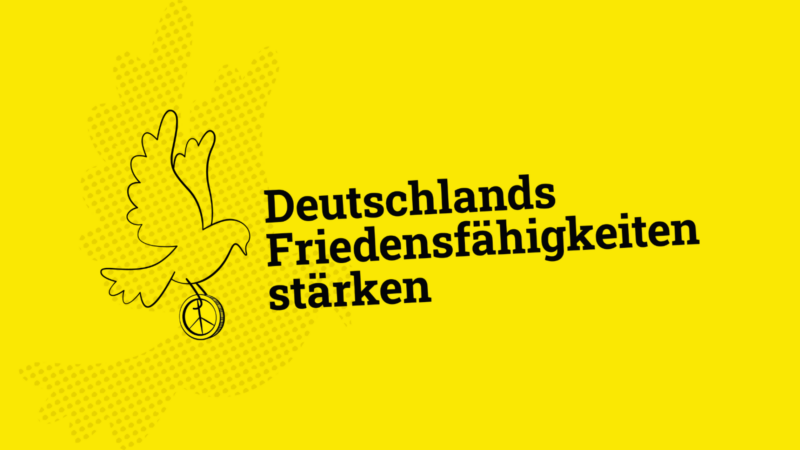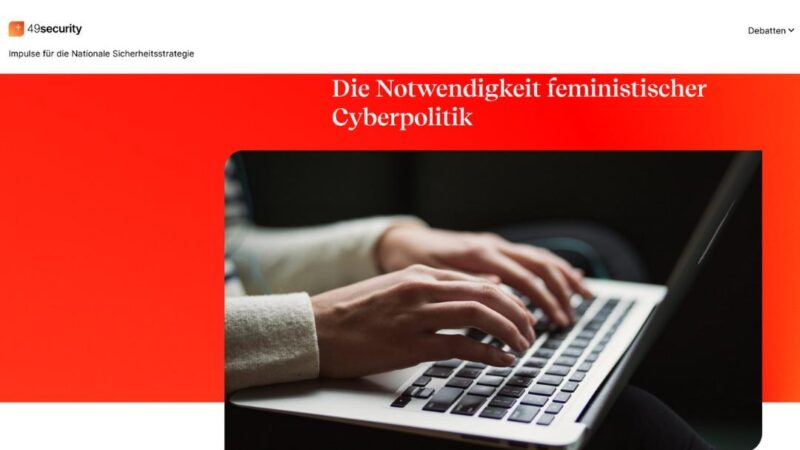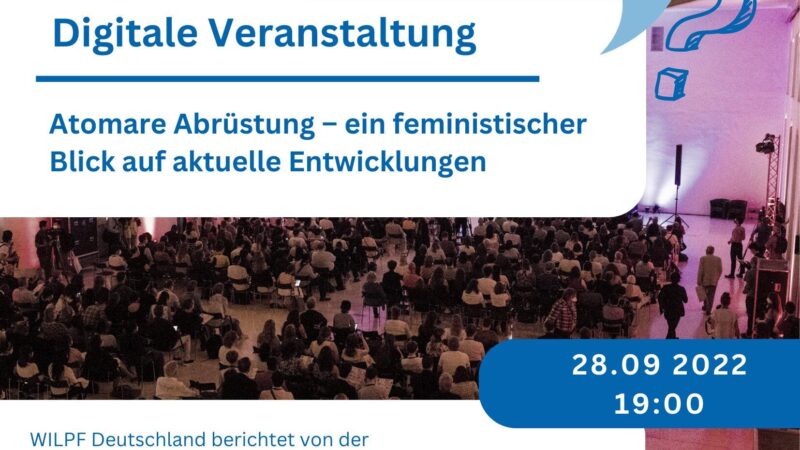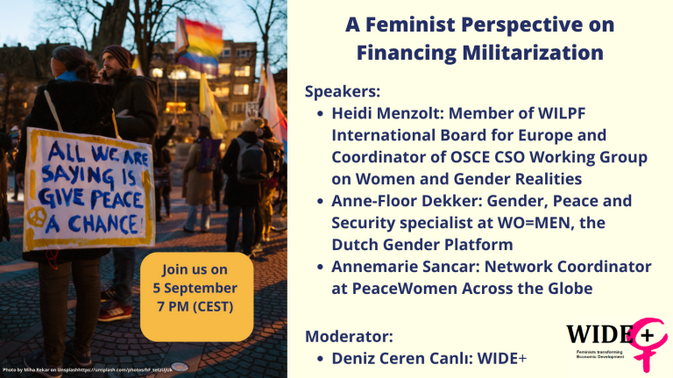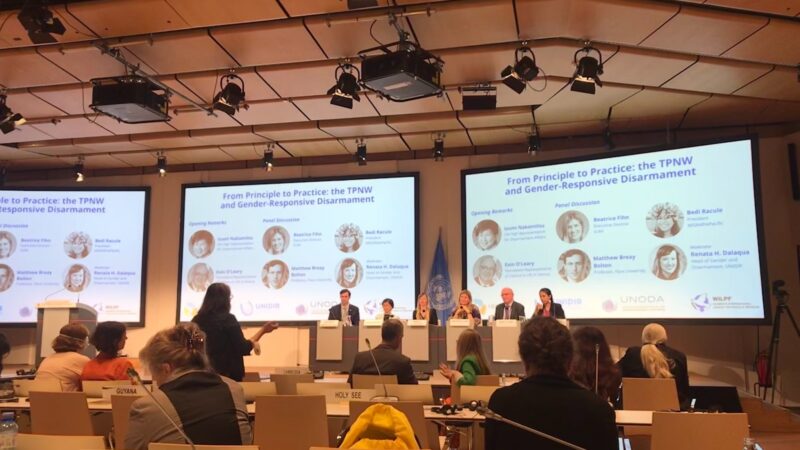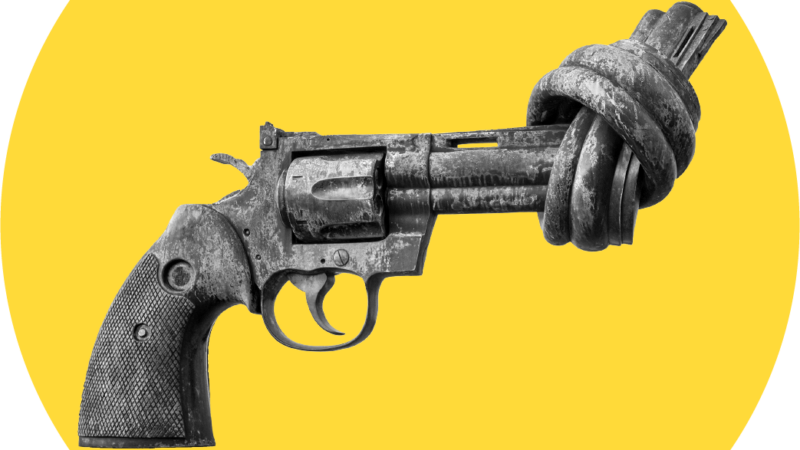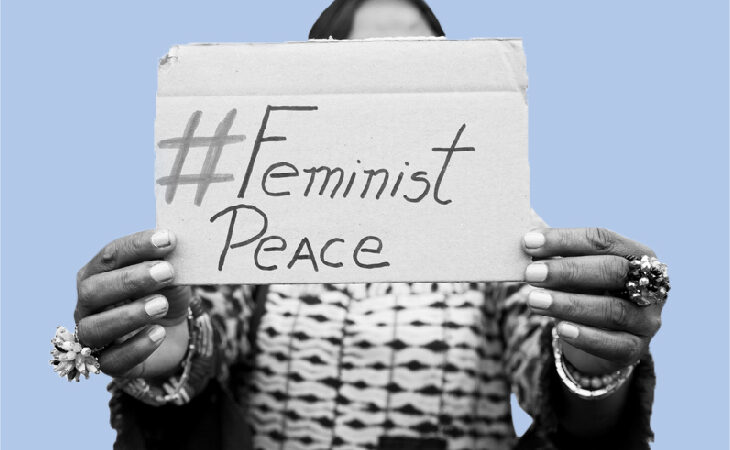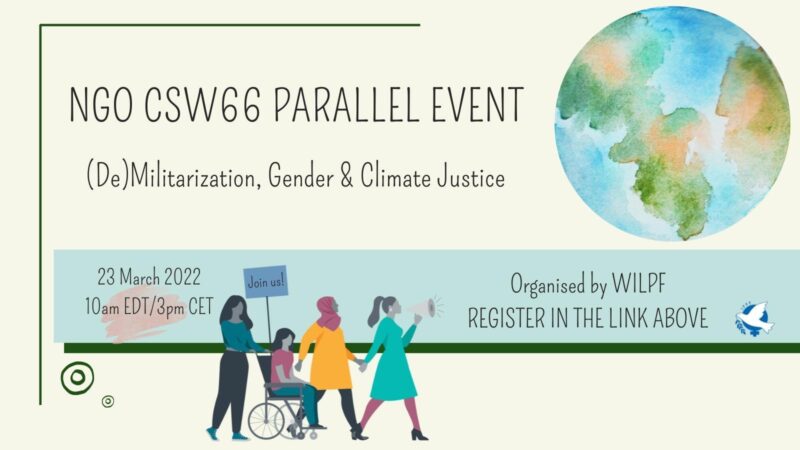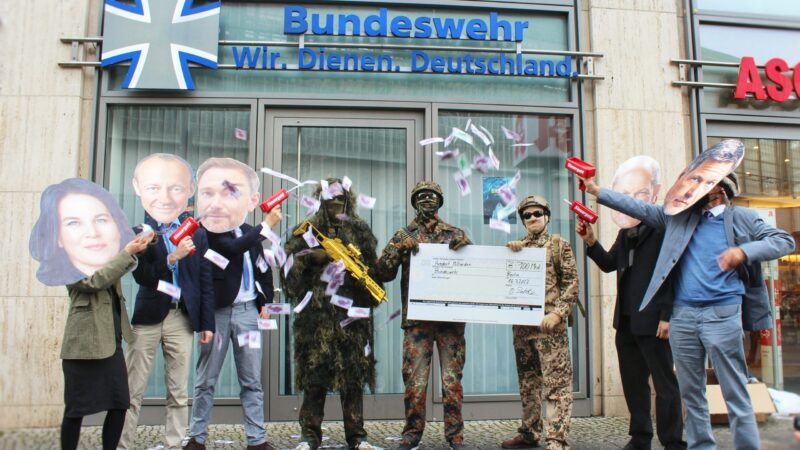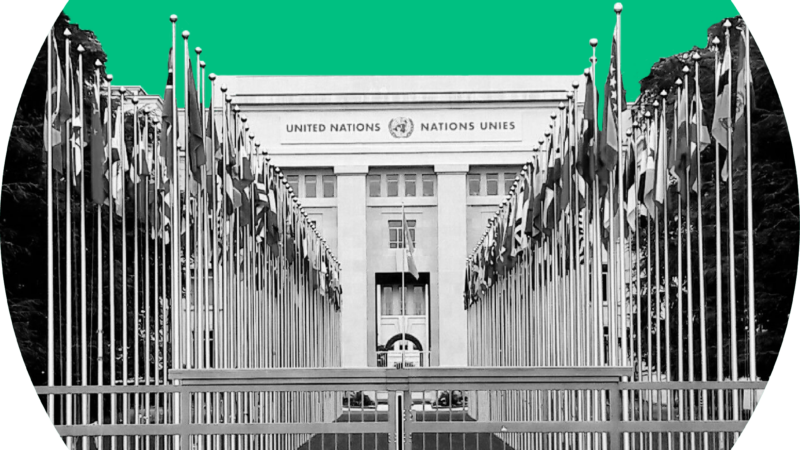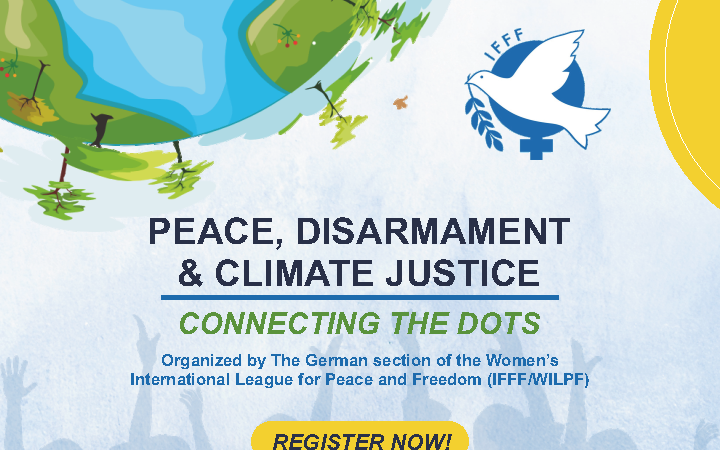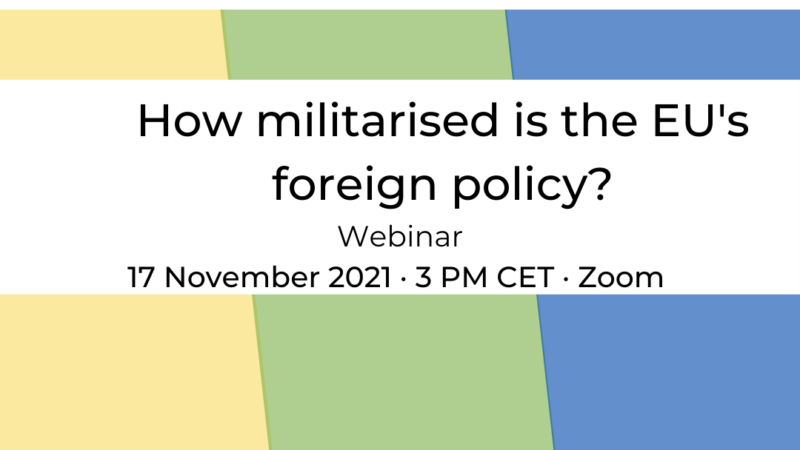
Abrüstung
Als feministische Friedensaktivist*innen fordern wir sofortige Abrüstung und Demilitarisierung. Die tägliche Bedrohung und die Auswirkungen von Waffen auf Menschen und Gemeinschaften muss beendet werden.
Niemand ist immun gegen die Auswirkungen von Waffengewalt
Waffen und Munition töten nicht nur. Sie bedrohen Leben und Lebensgrundlagen, sie untergraben den gesellschaftlichen Zusammenhalt und fördern Korruption, Armut und Unsicherheit. Zunehmend werden sie auch von rechtsextremen Gruppen eingesetzt, die ein rassistisches, antifeministisches Weltbild verfolgen. Sie machen unsere Welt weniger sicher, weniger friedlich und weniger gerecht.
Während Männer die überwiegende Mehrheit der direkten Opfer bewaffneter Gewalt darstellen, sind Frauen und andere marginalisierte Bevölkerungsgruppen in unterschiedlicher und unverhältnismäßiger Weise vom Einsatz und der Präsenz von Waffen betroffen. Wo Waffen vorkommen, sind Frauen einem deutlich höheren Risiko ausgesetzt, sexualisierte Gewalt zu erfahren.
Staaten und Unternehmen sind mitschuldig an der Aufrechterhaltung patriarchalischer Konzepte von Macht, Profit und Geschlechternormen, die Männlichkeit mit Zwang und Gewalt in Verbindung bringen. Indem sie die fehlgeleitete Vorstellung aufrechterhalten, dass Frieden bedeutet, sich mit Waffen zu schützen, stecken sie jedes Jahr Billionen Dollar in die Entwicklung von Waffen. Wir können uns nur vorstellen, was möglich wäre, wenn diese Mittel stattdessen in Schulen, das Gesundheitswesen, kommunale Ressourcen und die öffentliche Infrastruktur investiert würden!


